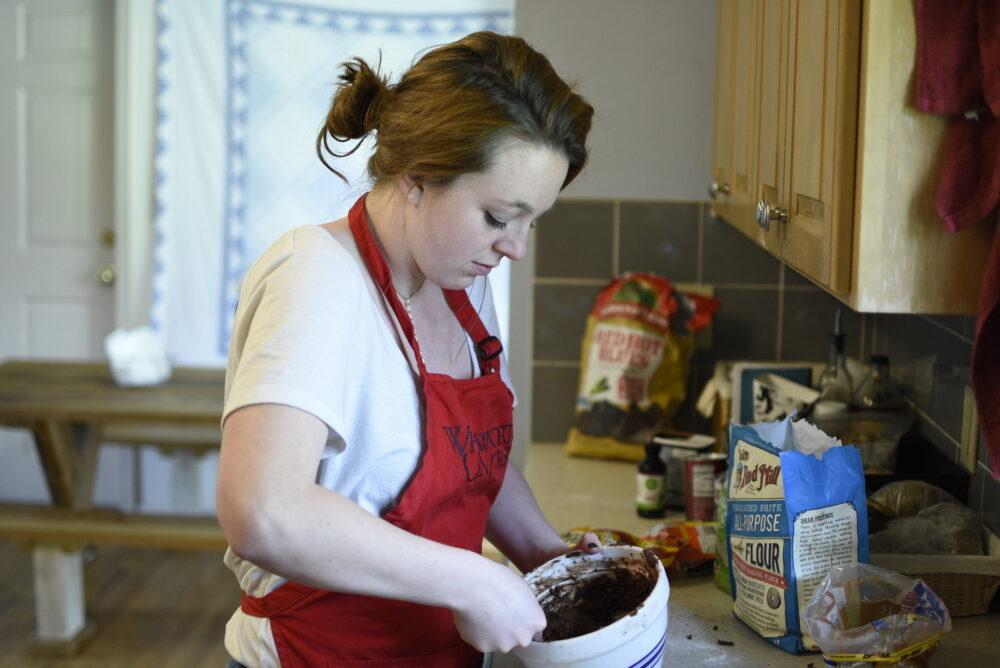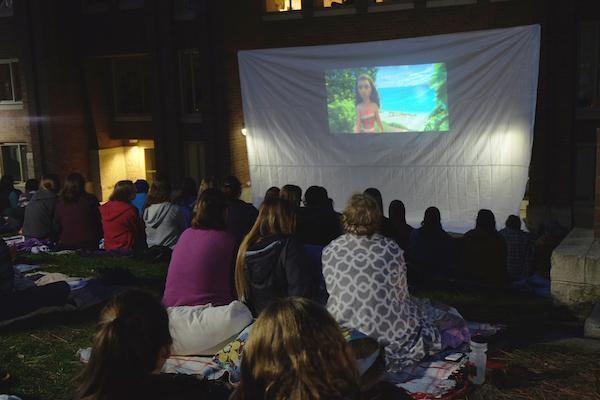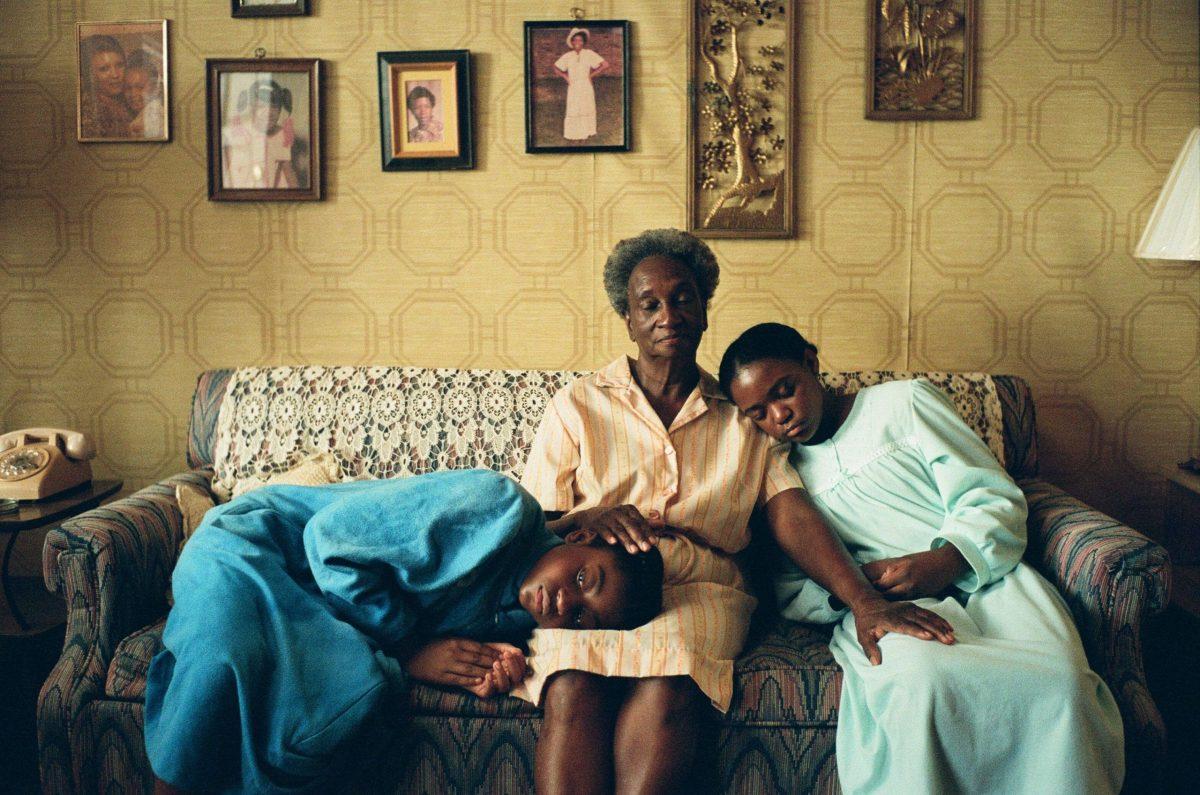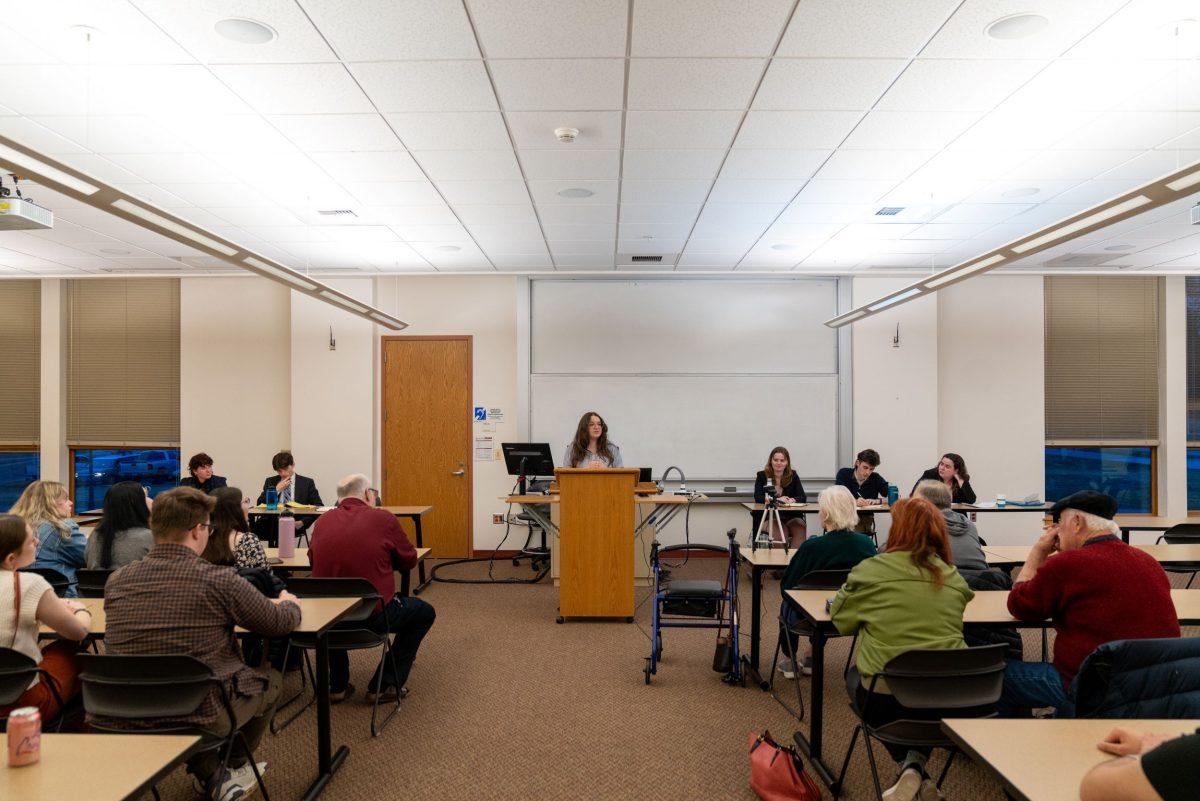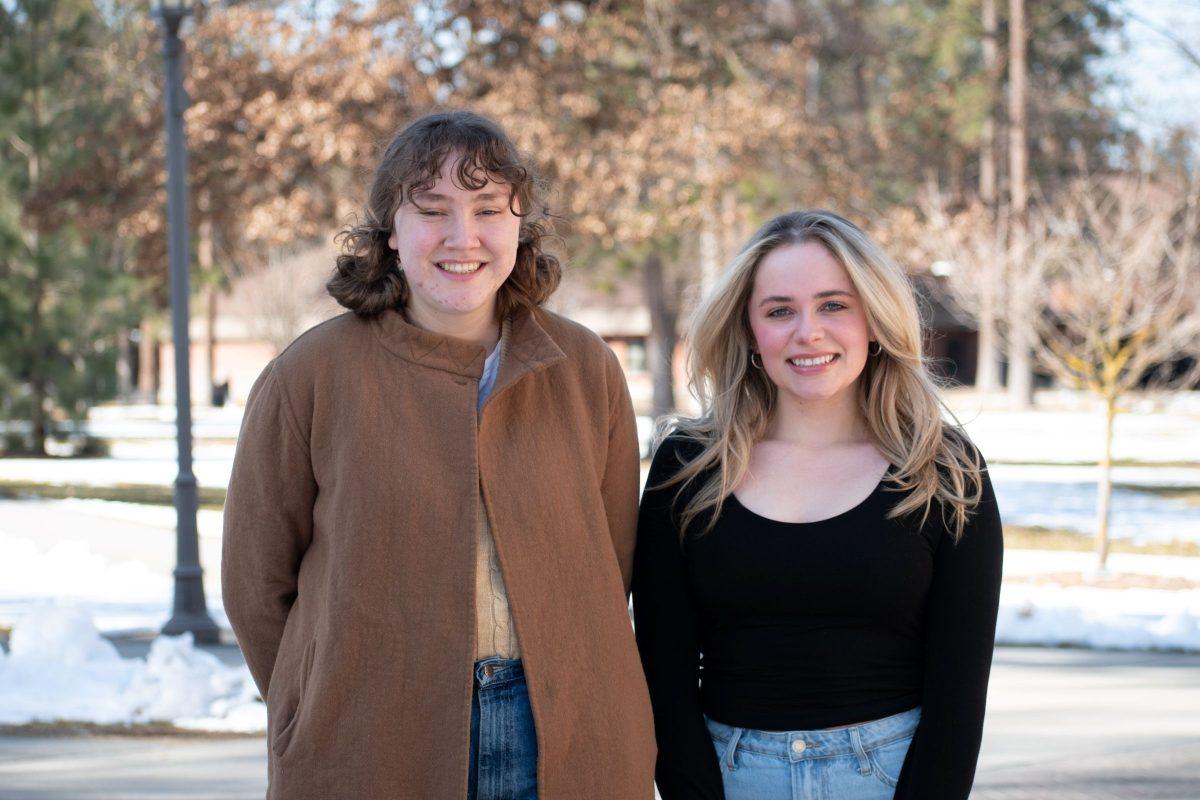Ten percent of college women suffer from an eating disorder, according to Mirasol Eating Disorder Recovery Center. Senior Avery Smith was diagnosed with bulimia nervosa her junior year of college. Her habits changed when she transitioned from high school to freshman year of college when she realized she was not going to participate in sports.
“I was feeling like I need[ed] to be more active,” she said. “I was not paying attention to the nutrition my body needed. I kept checking my weight and saying, ‘I need to drop more and then I’ll be happier.”
She was not diagnosed but she showed signs of orthorexia, an eating disorder that causes an individual to excessively exercise to offset the calories or the fixation to only eat healthy foods. Orthorexia can coexist with anorexia or other eating disorders. Smith recalls a time where she would fix her own meals at dinner instead of eating the food her family ate.
“My anxiety and depression tried to control everything but I realized that I was not in control of myself,” Smith said.
Eating Disorder Awareness Week, Feb. 27 to March 4, brings attention about the disorders and provides life-saving resources to those who need them. According to the National Association of Anorexia Nervosa and Associated Disorders, approximately 8 million people, which represents three percent of the total population, have eating disorders.
An eating disorder is a mental illness that can affect anyone, that causes individuals to develop irregular eating habits.The most common eating disorders are anorexia nervosa, bulimia nervosa and binge eating disorder.
Eating disorders are complex and are influenced by a combination of various factors. Those factors range from psychological, such as anxiety and depression, to biological, like genetics.
Smith caught herself slipping into unhealthy habits her junior year of college and admitted herself into The Emily Program before things got worse, she said. The Emily Program provides different services from individual therapy to medical services for adolescents and adults. Smith went to nutritional evaluation and counseling to learn how to overcome her bulimia in a healthy way.
“Everyone’s body is different,” she said. “A quick fix isn’t going to work. Healthiness varies so you have to listen to what your body says. It’s okay to eat from dessert time to time, it’s not going to hurt your goals. You have to have a healthy conscious about how you eat.”
Approximately 80 percent of Americans watch television daily, three hours per day on average according to the National Eating Disorder Association. NEDA said media is a social factor that can contribute to the pressure of body dissatisfaction and unhealthy eating habits. Society’s ideal of what a healthy body should look like is seen on the television, in magazines and on social media, Smith said.
Smith has a hard time looking at models because of the internalization of the thin ideal body image that the media perpetuates in society. Being educated on nutrition is important but recovery starts with self love, she said.
“Learning to love your body is important,” she said. “Self love for my body was hard for me because of society’s image of beauty. It’s easy not to love your body because of what society and media tell you. The fitness industry lies to you. They tell you to ‘do this workout’ or to ‘take this pill to look like this’ and that’s not the reality of it.”
Emily Soucinek is one of the main counselors at Whitworth’s Counseling Center. The counseling and the health center’s role is not to treat people who are diagnosed but instead direct students to other resources such as The Emily Program.
“The reason why we don’t want to treat them [clients] is because of the health risk,” Soucinek says. “Our main role is to provide a safe and approachable step to recovery by referring students to certified resources and professionals.”
Smith is on the road to recovery but she still has what she calls “ED thoughts,”distractions that may cause her to go back to her old unhealthy eating habits. Overcoming an eating disorder is not something that happens overnight, rather a progress of self discovery, Smith said.
“Eating disorders never go away,” she said. “People think it’s only black and white but it’s not. There are plenty of grey areas but you have to learn how to work through it.”
Smith said that her struggle with her eating disorder made her doubt her relationship with God. She could not understand why God was letting her hurt herself but now she is able to share her story with people who have reached out to her.
“I’ve helped other people because I’m not afraid to talk about it,” she said. “It is a part of who I am. It’s my identity and I shouldn’t be ashamed talking about it. Someone needs to know because hiding it doesn’t make it go away.”
Smith has been a soccer referee in Spokane since 2008. She is is currently into power lifting and wants to compete some day when she has the time. She eventually wants to go into law enforcement after she finishes her degree in sociology on the criminal justice track this May.
Schedule a medical appointment in Schumacher Hall at (509)-777-3259 or schedule a counseling appointment at 509-777-3289. For professional help, contact The Emily Program at 509-252-1366.
Contact Austriauna Brooks at [email protected]


